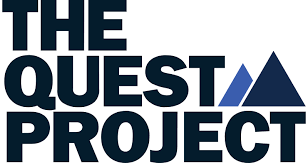Remember Sandy Hook?

Remember Sandy Hook?
Why now you ask do I bring up Sandy Hook? Well as many of you know I am coming to the end of my PhD studies; as a matter of fact I’m finishing my last two courses as I write this. A recent assignment was to discuss the horrible events that took place at Sandy Hook Elementary School back in 2012.
We all remember the perpetrator – Adam Lanza.
This was a perfect storm for this troubled teen. His parents were divorced, uneducated about ASD formally Asperger’s (which is what Adam presented with) and in denial of the severity of what their son needed. I also believe the parents intention was to help Adam. Their first step in this case was to get help for themselves.
Mom refused to follow medical advice she was given about Adam. The father was somewhat more compliant but stopped short getting Adam the necessary help by acquiescing to the mother’s wishes (this is seen more often as a systemic issue with an emotionally absent father). This situation was already considered “at risk” for this young man. There is countless research and data on this very issue alone.
Autism Spectrum Disorder (ASD)
As a young counselor my first work after receiving my masters was working as a case manager and facilitator at Judivine-A Center for Autism. My training was essential on a basic level and the experience even more so for the work I accomplished working with behaviorally, emotionally, and socially disordered adolescent population.
At present and on average, I have a case a month with a client presenting with ASD that at times has not been diagnosed correctly.
What is ASD and why is it so hard to get an accurate diagnosis? First thing, it is of utmost importance that a Licensed Professional either a Medical Doctor (MD), Psychologist (PhD), or Counselor/Social Worker (MA, MSW) trained in ASD make the diagnosis.
One of the most damaging things that I see in my practice is when a teacher at a school tells mom in front of the student he may “have” Asperger’s (ASD).
As a parent here are some of the signs to watch for:
- an insistence on routines
- aversion to change
- sensory sensitivities (which may interfere with eating, sleeping, and make routine care (e.g., haircuts, dental hygiene) difficult).
In school ASD students exhibit:
- difficulties in planning
- difficulties with organization
- difficulties with change
- a lack of social and communication abilities (which may hamper learning through social interaction or in settings with peers).
Autism Spectrum Disorder is diagnosed four times more often in males than in females.
The System Failed
Obvious to me was the lack of a case manager and/or assigned advocate for Adam. A patient advocate shadows the individual and keeps record of changes in behavior, emotion, and community involvement and reports immediately to the case manager. Additionally, an in home therapist is extremely important as the characteristics of ASD dictates an aversion to any routine changes and potential to regress and need a higher level of care.
What Did We Learn From Sandy Hook?
Be proactive and insist on the things I listed above at a minimum. I believe with moderate cases of ASD, opting for home schooling is a reasonable choice if at all possible. Additionally enrolling in an on-going group that teaches social skills, emotional regulation (big), anger management, and communication skills like The Quest Project® can be helpful.
I welcome your comments to my thoughts on such an emotional subject.

